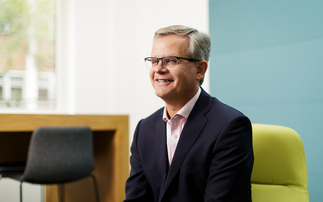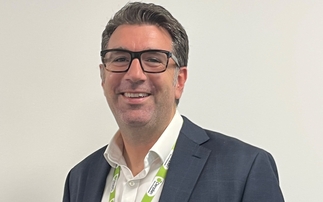With employers' duty of care and the need to keep workers happy and in work on everyone's lips, has the heyday for the healthcare cash plans sector finally arrived? Sam Barrett reports Click here to download pdf
With a history of more than 100 years, healthcare cash plans have learnt to move with the times, adapting their benefits to suit new demands.
This evolution is evident in the figures. Just short of 4.75 million people have cash plans, representing 7.9% of the population, according to Laing & Buisson's Health and Care Cover UK Market Report 2006. "In terms of the numbers, this has been fairly static for the last few years, although spending has been growing fairly strongly," says Philip Blackburn, senior economist at Laing & Buisson and author of the report.
For example, while £346m was spent on cash plans in 2000, this had risen to £440m by 2005. In terms of average plan price, this has risen by 37.5% (18% after inflation), jumping from £113 a year in 2000 to £156 in 2005. "It's good that people are happy to spend more but there is a limit to how much prices can increase," Blackburn adds.
There are early indications that this year's report could show a marked improvement in the numbers covered. Figures from the two largest players – HSA and Westfield Health – suggest that significant growth has occurred, especially in the corporate market.
For example, HSA sold 12,500 more cash plans in 2006 than in 2005 and saw a 44% growth in sales of company paid cash plans. Westfield Health has also seen sales increase and now has almost 350,000 customers and 8,000 organisations offering its plans to their employees. "We're very pleased with the way the business is performing and 2006 was a record-breaking year for us," says Jill Davies, executive director for sales and marketing at Westfield Health.
Environmental factors are certainly in the cash plan providers' favour. The introduction of a new NHS contract for dentists last April has made it harder to find an NHS dentist. Additionally, as NHS trusts look to reduce their deficits, patients are seeing many routine operations cancelled. This can lead to greater self-provision on the healthcare front.
In the employment sphere, there are also new pressures that are helping to make cash plans more attractive. "Cash plans used to be sold as an employee benefit but they're now sold much more as a tool to protect the bottom line," explains Raman Sankaran, director of strategic development at HealthSure. "Employers are more aware of their duty of care requirements in areas such as stress and eye tests and there's also a much greater risk of litigation. They're also more concerned about sickness absence, with many more companies now measuring the cost of this to their business."
Benefits
Because of this new demand from employers, cash plans providers have focused predominantly on the company paid corporate market over the last couple of years. Plan benefits have been pared right down to the essentials, such as optical, dental and physiotherapy, to reduce cost and confusion and new benefits have been added to help employers with the new challenges.
One of the new benefits is an employee assistance programme (EAP). This is available on plans from several providers, including HealthSure, HSA and Westfield Health, and can help an employer meet its duty of care requirements for stress management.
Phil Taylor, managing director of Preferred Medical, says this is a popular option. "Where a company has employees working on PCs, an annual eye test and an EAP will cost as much as a cash plan and it won't include all the extras such as dental benefit and physiotherapy," he explains.
Other new benefits have also been added in the last couple of years. For instance, at Westfield Health the most recent additions to its Foresight plan were cover for dependent children and a fitness and wellbeing option, which includes health club concessions, online health information and a 24-hour GP consultation line. These are available as optional modules for 15p a week per employee. "A modular approach is popular with our customers as it gives them greater choice over what they offer their employees," says Davies. "Bespoke tailoring is available for companies with 250 or more employees and we launched Mosaic last year to allow groups of 30 or more employees to tailor their benefits, but this gives choice whatever the size of the organisation," she adds.
More modular products are expected in 2007 with all the big providers hinting at what is coming next. "We'll be launching an occupational health and health screening module for WorkWell in April," says Suzanne Clarkson, head of corporate marketing at HSA. "It helps to make healthcare more accessible for those organisations who can't afford to have their own in-house facilities."
HealthSure's Sankaran is also expecting to launch new modules across his corporate products this year, with likely contenders including cover for children, health screening and more dental benefit. "We'll also look at ways we can provide access to some of the healthcare services within the group," he adds. Indeed, the Simplyhealth Group, which includes HealthSure and HSA, bought an occupational health company, Adastral, back in 2005 with a view to integrating its services within the business.
As well as offering broader cover through the pick and mix modular products, Sankaran also expects more targeted products to be launched in the next year or so. These could help employers meet their duty of care requirements, for instance, at a competitive price.
Appeal
Adding new benefits will help to extend the appeal of corporate schemes but Blackburn warns against taking this too far. "It's important to keep the cash plans distinct from medical insurance in terms of price and benefits. If they get too close it becomes difficult to differentiate."
While the company-paid corporate market offers plenty of opportunities, the individual market is proving more difficult to stimulate. "The problem is that the age of the membership has been rising," says Peter Morris, national sales manager at Medicash. "To secure a future for the market we need to appeal to younger people."
But promoting cash plans to this market is not easy, especially as awareness of cash plans is still relatively low. "We can put leaflets out locally but to have an impact on a national level through advertising you need to spend a lot of money," says Davies. This is difficult for the smaller providers, especially as margins are tight on plans.
Awareness is growing though. Larger players such as Axa and Bupa have been promoting cash plans, which will benefit the market as a whole. Additionally, by pushing plans in the corporate market, this will help to buoy sales of the individual product.
Perhaps as a result of the corporate focus there has been little product innovation on the individual side. HSA launched a dental plan last October and Westfield Health has invested in its online presence to help attract
n cont. p 38
individual clients.
Whether an individual or corporate plan, the providers are also keen to emphasise how much more they are working with intermediaries. Sankaran says that around 15% of HealthSure's business came through the intermediary channel in 2006 and he expects to see this grow to 20% this year.
But while there is more interest from intermediaries, it is not easy. Gerry Mould, UK sales adviser at Medibroker, finds that although he receives plenty of enquiries about cash plans, few of these turn into sales. "They're good products but they need to be sold face to face. We deal predominantly online and we find that once people weigh up the benefits they're more likely to go for a dental plan," he says.
Commission also comes in for criticism from intermediaries. "Cash plan premiums are low but the commission is lower still, and paid on the drip," says Taylor. "Unless you have a group of 250 employees or more then it's not worth selling and, unfortunately, 90% of companies have less than 10 employees."
The providers are well aware of this problem and, although commission is not on the up, they are prepared to offer as much support as possible. For example, HSA is developing its e-proposition to make it easier and more cost-effective to sell its products.
Medicash's Morris also recommends thinking about cash plans in a slightly different way. "Cash plans aren't a big earner but they can be an added-value tool, helping with customer satisfaction and retention," he says. "Unlike medical insurance, which hopefully no one will have to use, every employee should be able to claim every year so the feel-good factor is fantastic."
For example, where a company provides its management with medical insurance, there are opportunities to sell cash plans to the rest of the workforce. Likewise, even where medical insurance is in place for all employees, it could be more cost-effective to introduce a small excess and bring in a cash plan. "You can restructure benefits at little or no cost to the company. We have one broker who includes this product combination with every renewal," Morris adds.
So, while healthcare cash plan providers can look back proudly on their evolution, there are still challenges to overcome to secure a bright future.
Sam Barrett is a freelance journalist











